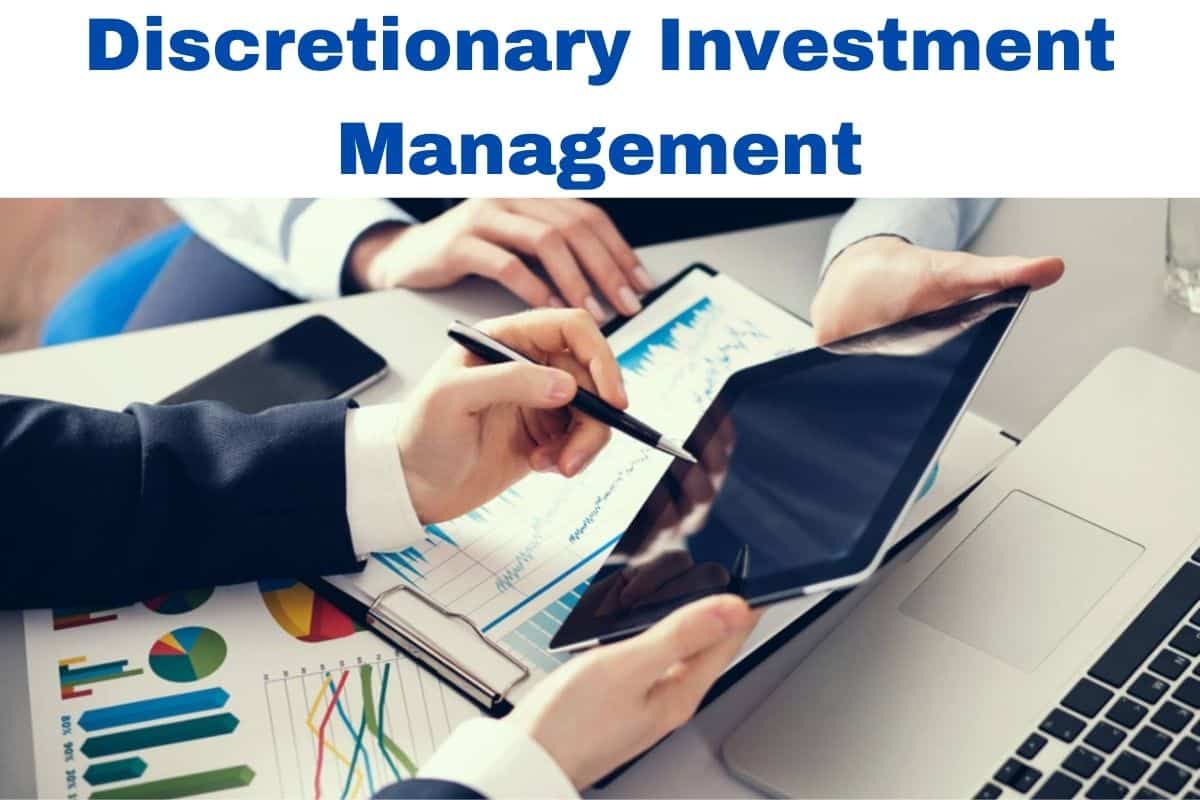Everyone knows it takes investments to attain financial freedom, not just income. This means that, irrespective of how much you make from your current job, without building a diversified investment portfolio, you will still struggle with finances. The good thing is, technology has simplified investments such that it’s now safe to invest in a low-risk portfolio without much stress. When you hear the word “investment,” you might immediately think of the frenetic New York Stock Exchange, or something for the American affluent. Fortunately, that understanding is evolving, and you can comfortably invest even as a beginner. The greatest way to improve the value of your money is to invest properly, and the majority of investment alternatives are accessible to practically everyone, regardless of age, income level, or line of work. If you’re just starting your investment journey, check out our safe guide on starting or diversifying your money with investments.
Best Money Investments
Here is a list of the best investments, generally from lowest to highest risk. Keep in mind that reduced risk typically results in lower rewards.
#1. Money Market Funds
Money market mutual funds are a sort of short-term investment. Unlike money market accounts, which are bank deposit accounts that resemble savings accounts, these are types of investment. When you invest in a money market fund, your money is used to buy a variety of high-quality, short-term government, bank, or corporate debt.
#2. High-Yield Savings Accounts
Online savings accounts and cash management accounts provide higher rates of return than traditional bank savings or checking accounts. Cash management accounts, which resemble a savings account-checking account hybrid, are frequently offered by brokerage companies and could come with debit cards or checks in addition to interest rates that are equivalent to savings accounts.
#3. Government Bonds
A government bond is a loan you take out from a public entity in exchange for interest payments over a set period. These may be federal or municipal government bonds and last anywhere from one to thirty years. Due to this reliable source of payments, bonds are referred to as fixed-income securities. If you’re looking for a risk-free investment for your money, check out government bonds. They are backed by the full faith and credit of the United States government.
#4. Corporate Bonds
Corporate and government bonds are distinguished primarily by the fact that you are providing money to an organization rather than to the government. These loans are riskier because the government does not guarantee them. A high-yield bond may have a risk/return profile that is substantially greater and more akin to stocks than bonds.
#5. Mutual Funds
A mutual fund raises funds from investors to buy stocks, bonds, or other assets. Investors can diversify their budgets by using mutual funds. This spread their money over a variety of investments, to shield themselves from the losses of any one investment.
#6. Index Funds
Equities from a particular market index are held by an index fund, a type of mutual fund. The intention is to provide investment returns that are comparable to the performance of the underlying index, as opposed to an actively managed mutual fund, which employs a professional to choose the fund’s assets.
#7. Exchange-Traded Funds
Exchange-traded funds, or ETFs, are similar to mutual funds in that they provide a single diversified investment by pooling client funds to buy a variety of securities. Investors buy shares of ETFs exactly like they would individual stocks, despite the fact that the way they are presented is different.
Money Investments for Beginners
When you first begin, investing may seem intimidating, but it’s a crucial step in building wealth and setting money aside for a range of financial goals. Don’t worry too much about whether or not this is the best time to start investing. In fact, there isn’t. Throughout your investment journey, you will encounter a range of market environments. Here are some of the top recommendations for novice investors.
#1.High-yield Savings Accounts
This is one of the simplest ways to get a better return on your investment than a typical checking account. In general, high-yield savings accounts, which are usually opened through an online bank, provide customers with regular access to their money while paying an average interest rate that is higher than that of traditional savings accounts.
If you’re accumulating money for a future purchase or keeping it in case of an emergency, this can be a great place to keep it.
#2. Certificates of Deposit (CDs)
A certificate of deposit (CD) is an option to high-yield savings accounts, but it will tie up your money for a longer length of time. A CD can be purchased for a period of time as little as six months or as long as five years, but typically you cannot access the money until the CD expires without paying costs. If you purchase one from a bank that is federally insured, you are protected up to $250,000 per depositor, per ownership type. They are regarded as being quite secure.
#3. 401(k) Plans or Other Employee Pension Arrangements
This could be one of the simplest ways to start investing, and it offers a number of important advantages that could be beneficial to you both now and in the future. Most employers provide a percentage match of the retirement savings you choose to make from your regular salary. If your employer offers a match and you don’t take advantage of the chance, you are wasting free money.
A basic 401(k) allows for pretax contributions, and those contributions grow tax-free up to retirement age. Some firms provide Roth 401(k)s, which let employees contribute after taxes. If you select this option, you won’t have to pay taxes on withdrawals made during retirement.
How to Make Money Investments
The best investing strategy for you will depend on your particular preferences as well as your current and future financial circumstances. It’s essential to have a clear understanding of your income and spending, assets and liabilities, commitments and goals when developing a solid investment strategy. Here are the specifics on how to immediately begin managing your money appropriately.
#1. Give Your Funds a Purpose
The first step in finding out how to invest money is determining your investing goals when you need or want to achieve them, and your comfort level with risk for each goal.
- Long-term targets
- Short-term goals
#2. Determine How Much Help You Need
Once you are aware of your objectives, you may delve into the specifics of how to invest (from picking the type of account to the best place to open an account to choosing investment vehicles). Don’t worry, though, if using the DIY approach doesn’t sound appealing to you. Many savers would rather have someone else handle the investment of their money. And although it was formerly pricey, it is now fairly affordable.
#3. Choose a Trading Account
The bulk of stocks and bonds must be purchased through an investment account. Just as there are several bank accounts for various purposes, such as checking, savings, money market, and certificates of deposit, there are various investment accounts to be aware of.
Some accounts offer tax advantages if you’re investing with a specific objective in mind, like retirement. You may be subject to taxes or other penalties if you withdraw your money too soon or for a reason that isn’t covered by the plan’s rules. Other accounts are general-purpose and should be used for goals other than retirement, such as saving for that future ideal vacation home and boat, or home improvement.
#4. Create an Account
Now that you are aware of the type of account you want, you must choose a provider. There are basically two options:
- Using an online broker, you can self-manage your account and purchase and sell a variety of investments, including stocks, bonds, ETFs, and more difficult items.
- The majority of the work will be done for you by a robo-advisor at a portfolio management company employing computers, who will build and manage a portfolio in line with your goals and risk tolerance.
#5. Based on Your Level of Risk Tolerance, Choose Your Assets
Learning how to invest requires asking where to put your money. The reaction will depend on your goals and willingness to take on more risk in exchange for maybe higher investment returns. Investments typically include:
- Stocks:
- Bonds:
- an investment fund
Money Investments Ideas
To keep your money in a liquid state that is simple to access when needed, you must invest in a strategy that reduces your risk of capital loss. As a result, you will probably earn less money than the best long-term investments can provide, but that is the cost of keeping your money “safe.”
#1. Real Estate Investment Trusts (REITs)
In contrast to the best long-term investments, real estate investment trusts (REITs) offer an alternative, less dangerous way to make short-term investments. These investments include businesses that own income-producing real estate, whether it be of a commercial, residential, or industrial nature.
Without having to deal with the inconveniences or added labor of being a landlord, investing in REITs allows you to gain exposure to the returns of the real estate market. With a lot less money than you would require to purchase actual property, you can invest in real estate through REITs. For instance, investors may open an account and start building a real estate portfolio with Fundrise for as low as $10. Sells private equity REITs through Fundrise.
#2. Money Market Accounts
The best money market accounts charge somewhat more than the finest online savings accounts while also providing depositors with checks, ATM cards, and deposit slips. Also bear in mind that money market accounts base their calculations not on the length of your investment but rather on the account balance. Because of this, money market accounts are a great option for anyone who needs a short-term somewhere to store their extra money with the freedom to access it whenever they need to.
You may be sure that, like other deposit accounts, your money market funds will be protected by FDIC insurance. If you’re looking for a money market account with the best potential return, consider choices from banks like UFB Direct, CIT Bank, and UFB Direct.
#3. Crypto Savings Accounts
With crypto savings accounts, you can also profit from your deposits, but it’s important to keep in mind how swiftly this industry is developing. For instance, these accounts’ interest rates could drastically alter, and some cryptocurrency savings accounts are only accessible to investors who meet specific requirements.
The best cryptocurrency exchanges to watch out for are Gemini and Celsius, but the latter only offers interest-bearing accounts to accredited investors. In the same way that traditional banks lend out their money, Gemini currently offers up to 8.05% APY on cryptocurrency deposits that are lent to other cryptocurrency investors.
#4. High-Yield Savings Accounts
High-yield savings accounts offer a risk-free way to invest your money for the short term, despite the fact that its guaranteed return is far lower than what you may get elsewhere. The best high-yield savings accounts feature yields that are much more than 1% annually, and many of them have no or minimal account fees.
More importantly, the best high-yield savings accounts come with FDIC insurance, guaranteeing that your investment of up to $250,000 per account is fully protected in the event that your bank encounters financial difficulties or closes. If you’re looking for the best high-yield savings account to open online, we suggest considering alternatives from CIT Bank, Discover, and UFB Direct.
Safe Money Investments
While it’s true that money investments involve a lot of risk, investors look out for safe investments too. If you’re seeking safety from unpredictable markets, these safe investments provide lower risk than stocks and peace of mind for your money.
#1. Real Estate
Real estate is first on our list of possible safe investments for your money. You may see this as a solid investment, depending on the local conditions. A good income from real estate may also be possible, again depending on local market conditions. Long-term real estate appreciation is still fairly low, as shown by the 25-year average of 3.8%. In contrast to other safe money investments, real estate may require a substantial initial investment and is associated with a number of additional costs, such as property taxes and maintenance costs.
Some people may suggest investing in real estate investment trusts to have exposure to real estate with more liquidity and lower costs (REITs). REITs, however, have a high degree of risk and cannot be recommended as a safe haven for your money in volatile markets.
#2. Corporate Bonds
Reviewing bond ratings is crucial to ensuring the security of your investment. For corporate bonds to be considered investment grade, they typically need to have a rating of AAA, AA, A, or BBB. Matthews advocates doing this. Anything else could have much higher risks and much bigger gains.
If you want to save money and reduce the risk of any one company defaulting, consider using bond mutual funds and bond ETFs, which invest in hundreds or thousands of corporate bonds. Most brokerages now provide index-based ETFs and mutual funds without trading fees, but it’s important to double-check and be aware of load fees for mutual funds.
#3. U.S. Treasury Bonds
Next on our list of safe money investments is U.S. Treasury bonds. Most individuals concur that U.S. investment is one of the most secure investment options available. Treasury securities. Due to the United States government’s lack of debt defaults, investors consider it safe. Treasury bonds are a fairly safe way to invest.
Bonds issued by the US government may be bought directly. It is possible to trade Treasury securities or commodities using an online brokerage platform. Additionally, there are mutual funds and exchange-traded funds (ETFs) that only hold American assets in which you can invest. treasuries. In this way, if you require cash before the bond expires, you can avoid the headaches of purchasing individual bonds and reselling them on the secondary market.
#4. Gold
Many investors believe that gold is the ultimate secure investment. Just keep in mind that it might see abrupt price changes comparable to those in stocks and other hazardous investments. Research suggests that gold may hold its value throughout time.
#5. High-Yield Savings Accounts
The high-yield savings account is the last on our list of safe money investments. In fact, a high-yield savings account is one of the most safe investments for your money. Due to the fact that they are covered by the Federal Deposit Insurance Corporation, these bank accounts are extremely liquid and resistant to market volatility (FDIC). Just keep in mind that if inflation exceeds your annual percentage yield, your money could lose value (APY).
Interest rates on deposit accounts are now quite low and are predicted to stay that way for some time. The greatest savings accounts can still give you tiny profits even though they won’t always keep up with inflation.
Money Investments Apps
Money investments are very much possible with software apps. These applications make it easy for consumers to play a fun stock-picking game and are great for beginner investors. Here is a list of the top software programs for managing your finances and investing.
#1. Betterment
Betterment is the first on our money investment apps list. It’s one of the most popular and well-known robo-advisors. According to your personal risk tolerance and the timing of your financial needs, the app offers professionally managed portfolios using a choice of ETFs. Betterment may create socially responsible portfolios with a focus on climate change or social impact.
#2. Acorns
Acorns is still among the most extensively used of the current generation of savings applications because of how easy it is to use. You actually don’t need to pay much attention after you set it up.
#3. Invstr
Beginning stock investors have a way to begin investing by fusing education, real-world investment, and community, especially if you enjoy playing video games. The app combines a fantasy stock game where you can assist in managing a virtual portfolio with access to professional comments on stocks and other investments.
#4. Robinhood
If you want a clean user interface and want to avoid trading commissions, whether you trade stocks, ETFs, options, or cryptocurrencies, Robinhood is the app for you. With an excellent mobile interface that makes everything very simple, you may finish it all without paying a commission.
#5. Fidelity Investments
If you decided to base your entire financial life on Fidelity Investments, you could do it with ease and have the most seamless experience. Fidelity provides IRAs, and SEP IRAs for businesses, checking accounts, bill-paying accounts, savings accounts, robo-advisor accounts, and even credit card accounts to cover the essential ones.
What can I invest in to make money fast?
The top short-term investments that nonetheless provide you with a return are listed below.
- Savings accounts with high yields.
- corporate bond funds with a short maturity.
- accounting for money markets.
- accounts for managing money.
- U.S. government bond funds for the short term.
- certificates of deposit with no penalties.
- Treasurys.
How can I invest my $1000?
- Open (or increase) a savings account.
- 401(k) investment
- Purchase an IRA
- Open a brokerage account that is taxed.
- Purchase ETFs
- Employ a robot advisor
- Purchase stocks.
How can I really invest my money?
You can choose to simply keep your cash at home or invest it in:
- Assurance programs.
- Investment funds.
- Small savings accounts, Public Provident Funds (PPF), and fixed deposits.
- The property.
- stock exchange.
- Commodities.
What kind of investments make the most money?
The Best Returns on Safe Investments
- Savings accounts with high yields.
- Deposit certificates.
- Market-based accounts.
- Treasury Bonds
- Treasury Securities With Inflation Protection.
- Governmental bonds.
- Business bonds.
What is the #1 safest investment?
certificates of deposit for brief periods. Money market investments. Bonds, TIPS, and Treasury Bills.
Where should a beginner invest?
- Savings accounts with high yields
- CDs, or certificates of deposit
- a 401(k) or any other type of corporate retirement plan
- Investment funds
- ETFs
- Specific stocks.
Conclusion
Investment is the fastest route to gaining financial freedom. You also do not have to earn in hundreds or milions of dollars to start investing. You can simply begin with what you have and nurture it with diversification over time.
Money Investments FAQs
What is the number 1 rule of investing in properties?
Investment properties are evaluated according to the 1% rule, which compares the purchase price to the expected annualized gross rental revenue. The 1% rule states that a property’s monthly rent must be at least equal to 1% of the purchase price in order for it to be considered a good investment.
What is the 70/30 Rule investing?
The 70/30 portfolio splits investment capital between equities (stocks) and fixed income (bonds/interest-bearing accounts). An example portfolio using this method would have 70% invested in stocks, mutual funds, and exchange-traded funds that focus on equities either actively or passively (ETFs).
- BUSINESS DEPOSIT ACCOUNTS: List of the Best Deposit Accounts in 2023 (Updated)
- HOW TO SAVE MONEY FOR A HOUSE: Simple Tips
- High Yield Investments: How to Spot High Yield Investments (With Best Options Updated!)






